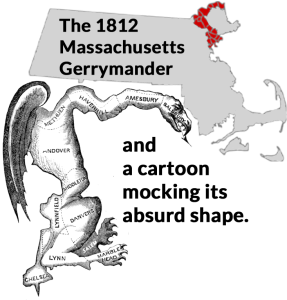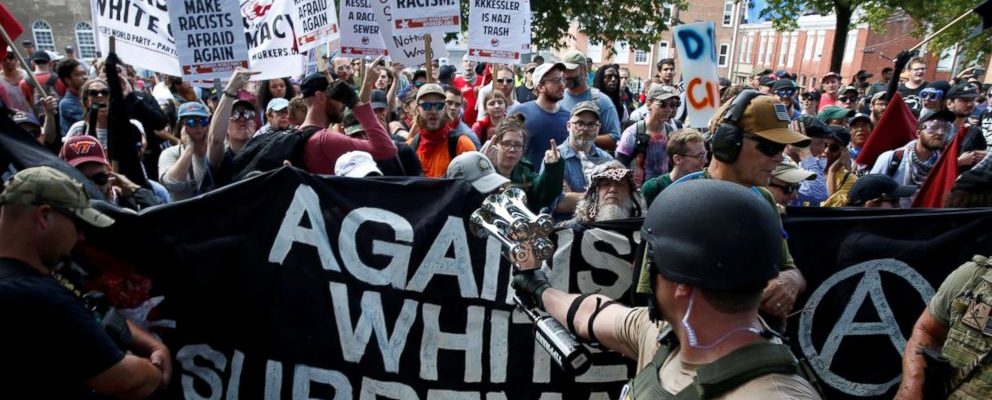Marcellus Wiley has a unique background. He grew up in Compton, CA, went to Columbia University, had a solid 10-year NFL career, then used his intellect combined with his education and NFL background to become a highly successful on-air media presence for ESPN.
Mr. Wiley recently, in the aftermath of the Charlottesville neo-Nazi march and terror attack that left one woman, Heather Heyer, dead and many more injured, gave an interview on his thoughts. In that interview, he told his audience that he spends much time in group texts and other forums trying to figure out where we go to move forward. What path should we follow to achieve change? He stated that there needs to be a change in mindsets. He said that actions must be taken and first suggested that people get out and vote. Too many people do not exercise that right. In Presidential voting years the percentage of people who vote is only around 55-60%. And in midterm elections, it’s even worse. In 2014, only 36.4% of eligible voters made it to the booths.
Mr. Wiley also suggested that people volunteer in communities that need assistance, and that people of color demand the respect to which they are entitled. He did not insinuate that they should be disrespectful. He recalled his father telling him to put his hands at 10 and 2 on the steering wheel when he’s pulled over. But that does not prevent one from demanding the respect that one is due as a human being.
Mr. Wiley’s interview was on television. He also has a radio show with co-host Kelvin Washington. Here in L.A. it is on 710 ESPN from 3:00 to 7:00 p.m. On that show, Mr. Wiley had a far more animated tone than he did in his television interview. His points remained salient, but there was an anger to his voice. His central point was that talk is cheap, especially at this point in time. People feel good posting on social media and using hashtags to show their outrage but those posts do nothing in furtherance of racial equality. He bluntly said that those people need to stop with the talk and start to walk. But what does that mean? He gave some examples in his television interview, but does Mr. Wiley expect change with what he recommended? I don’t.
Mr. Wiley may not want to hear suggestions from a Jewish Los Angeles lawyer, but here they are nonetheless: If it were me, I would use the momentum from the counter-protests and Black Lives Matter movement to enact two pieces of tangible change from which more building can be done:
1) Reinstate The Voting Rights Act of 1965

Martin Luther King, Jr. recognized that the right to vote was absolutely necessary in order to have a chance at attaining societal equality. You, yourself stated that voting was part of the action that is necessary in today’s day and age when it comes to making a difference. The Voting Rights Act of 1965, which prevented the states from discriminating on the basis of race disappeared with a whimper when the United States Supreme Court struck key portions of it down in 2013. But why with a whimper? One could argue that we wouldn’t have a President Trump if laws targeting minorities to prevent them from voting weren’t on the books.
Black Lives Matter is protesting pervasive racism in the police ranks and societal inequality. But to your point Mr. Wiley, what is the point of the hashtag #BLM, or even protesting for that matter if there isn’t a specific plan to achieve the end game? But what if Black Lives Matter and those who support equality marched to reinstate the Voting Rights Act of 1965? What if part of the end game was making sure that every eligible voter was able to exercise his or her right to vote? We know that such a purpose would serve minority communities, which is why the law was put on the books in the first place. The elected representatives are the ones who make the laws, the ones who appoint the regulators, the ones who say, prosecute racist police. Why not march to make sure that the ones in charge are representing the population they are supposed to serve? Reinstating the Voting Rights Act of 1965 is one way to make that happen.
2) A Constitutional Amendment to Prevent Gerrymandering

First, it’s clear what you’re thinking. The United States Supreme Court is going to rule on partisan gerrymandering next session. But you forget. The country cowered and allowed the Republicans to steal a seat, turning Merrick Garland into Neil Gorsuch. And we know what that means. At a time when Republicans have an overwhelming majority in the state houses, gerrymandering is here to stay.
You may notice that no distinction is made here between gerrymandering and racial gerrymandering. As we know, racial gerrymandering is illegal, something North Carolina learned the hard way recently; however, proving gerrymandering on the basis of race takes more than a smile. When Republicans gerrymander, they are doing so to stay in power. To stay in power, they know that they have to lower the minority voter turnout. It doesn’t take a rocket scientist to discern as much when one looks at what the Republicans have historically done with re-districting.
As argued above, there is a way to assert one’s power where it makes a difference and it starts at the voting booth. But the only way the voting booth makes a difference is if the districts are fairly drawn to represent the districts that actually exist in society, not district lines that look more like a three-year old’s drawing of a dinosaur than an actual district of voters.
A Constitutional amendment requires a two-thirds vote in the House and Senate. So make The Voting Rights Act of 1965 and gerrymandering issues in every election from here on in. Demand that the people running for elected office commit to reinstating the VRA and to putting a permanent end to gerrymandering. It won’t happen overnight, but neither did the Civil Rights movement in the 1960s.
In conclusion, Mr. Wiley, your challenge to action is hereby accepted. I live here in L.A. and am all ears when it comes to specific action. Your voice is a loud one given your broad reach, and an important one given the clarity with which you deliver your message. Maybe you can drop the above hint or two to some influential people. It can’t hurt, right?




















Pingback: Athletes Responding to Trump - Rudin Writes
Pingback: A 2018 Sports and Politics Preview - 365 Questions and Answers (Part II) - Rudin Writes
nice going!
Pingback: Lindsey Graham's Op-Ed About His Problems With Society - Rudin Writes